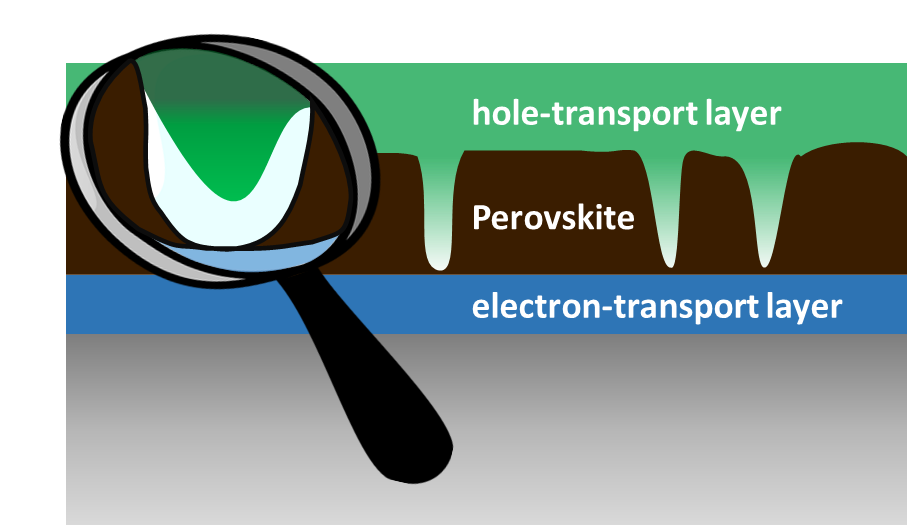A group of researchers from Germany’s research center Helmholtz Zentrum Berlin (HZB) claims it has discovered the reason why holes in perovskite films produced through a spin coating technique and used in solar cells do not cause a reduction in the cells’ performance.
The scientists said that these holes, which are commonly responsible for leading to short circuits in the solar cell by the adjacent layers of the solar cell coming into contact, if produced through a spin coating technique, do not lead to significant short circuits between the front and back contact of the cell, and thus do not negatively impact the cell’s performance.
The research group has used scanning electron microscopy to observe the perovskite films used in the research, and has discovered that the solar cells do not see their performance degrade thanks to a high-rate charge carrier recombination.
“We were able to show that the substrate was not really exposed even in the holes, but instead a thin layer is being built up essentially as a result of the deposition and crystallization processes there that apparently prevents short circuits,” the German scientists said.
“The electron transport layer (TiO2) and the transport material for positive charge carriers (Spiro MeOTAD) do not actually come into direct contact. In addition, the recombination barrier between the contact layers is sufficiently high that the losses in these solar cells is minute, despite the many holes in the perovskite thin-film,” added research coordinator Marcus Bär.
This content is protected by copyright and may not be reused. If you want to cooperate with us and would like to reuse some of our content, please contact: editors@pv-magazine.com.




By submitting this form you agree to pv magazine using your data for the purposes of publishing your comment.
Your personal data will only be disclosed or otherwise transmitted to third parties for the purposes of spam filtering or if this is necessary for technical maintenance of the website. Any other transfer to third parties will not take place unless this is justified on the basis of applicable data protection regulations or if pv magazine is legally obliged to do so.
You may revoke this consent at any time with effect for the future, in which case your personal data will be deleted immediately. Otherwise, your data will be deleted if pv magazine has processed your request or the purpose of data storage is fulfilled.
Further information on data privacy can be found in our Data Protection Policy.